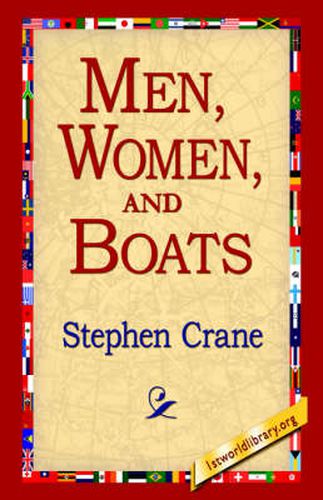Readings Newsletter
Become a Readings Member to make your shopping experience even easier.
Sign in or sign up for free!
You’re not far away from qualifying for FREE standard shipping within Australia
You’ve qualified for FREE standard shipping within Australia
The cart is loading…






This title is printed to order. This book may have been self-published. If so, we cannot guarantee the quality of the content. In the main most books will have gone through the editing process however some may not. We therefore suggest that you be aware of this before ordering this book. If in doubt check either the author or publisher’s details as we are unable to accept any returns unless they are faulty. Please contact us if you have any questions.
Purchase one of 1st World Library’s Classic Books and help support our free internet library of downloadable eBooks. Visit us online at www.1stWorldLibrary.ORG - - Through the purchase of this book, you have assisted 1st World Library-Literary Society (a nonprofit organization) in achieving it’s goals: www.1stworldlibrary.org 1. Creating a free, user-friendly, Internet library accessible from any computer worldwide. 2. Hosting writing competitions and offering book publishing scholarships. It hardly profits us to conjecture what Stephen Crane might have written about the World War had he lived. Certainly, he would have been in it, in one capacity or another. No man had a greater talent for war and personal adventure, nor a finer art in describing it. Few writers of recent times could so well describe the poetry of motion as manifested in the surge and flow of battle, or so well depict the isolated deed of heroism in its stark simplicity and terror. To such an undertaking as Henri Barbusse’s “Under Fire,” that powerful, brutal book, Crane would have brought an analytical genius almost clairvoyant. He possessed an uncanny vision; a descriptive ability photographic in its clarity and its care for minutiae - yet unphotographic in that the big central thing often is omitted, to be felt rather than seen in the occult suggestion of detail. Crane would have seen and depicted the grisly horror of it all, as did Barbusse, but also he would have seen the glory and the ecstasy and the wonder of it, and over that his poetry would have been spread.
$9.00 standard shipping within Australia
FREE standard shipping within Australia for orders over $100.00
Express & International shipping calculated at checkout
This title is printed to order. This book may have been self-published. If so, we cannot guarantee the quality of the content. In the main most books will have gone through the editing process however some may not. We therefore suggest that you be aware of this before ordering this book. If in doubt check either the author or publisher’s details as we are unable to accept any returns unless they are faulty. Please contact us if you have any questions.
Purchase one of 1st World Library’s Classic Books and help support our free internet library of downloadable eBooks. Visit us online at www.1stWorldLibrary.ORG - - Through the purchase of this book, you have assisted 1st World Library-Literary Society (a nonprofit organization) in achieving it’s goals: www.1stworldlibrary.org 1. Creating a free, user-friendly, Internet library accessible from any computer worldwide. 2. Hosting writing competitions and offering book publishing scholarships. It hardly profits us to conjecture what Stephen Crane might have written about the World War had he lived. Certainly, he would have been in it, in one capacity or another. No man had a greater talent for war and personal adventure, nor a finer art in describing it. Few writers of recent times could so well describe the poetry of motion as manifested in the surge and flow of battle, or so well depict the isolated deed of heroism in its stark simplicity and terror. To such an undertaking as Henri Barbusse’s “Under Fire,” that powerful, brutal book, Crane would have brought an analytical genius almost clairvoyant. He possessed an uncanny vision; a descriptive ability photographic in its clarity and its care for minutiae - yet unphotographic in that the big central thing often is omitted, to be felt rather than seen in the occult suggestion of detail. Crane would have seen and depicted the grisly horror of it all, as did Barbusse, but also he would have seen the glory and the ecstasy and the wonder of it, and over that his poetry would have been spread.